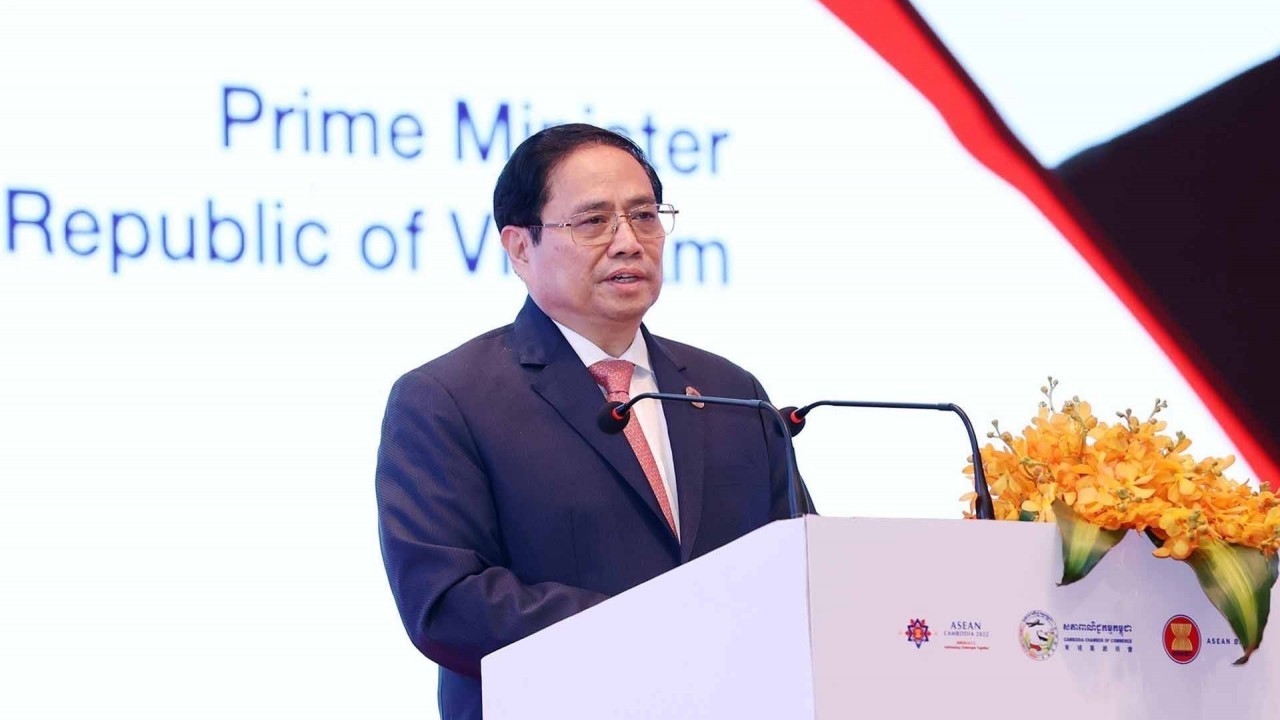
'Vietcombank ready for opportunities post Covid-19'
Latest
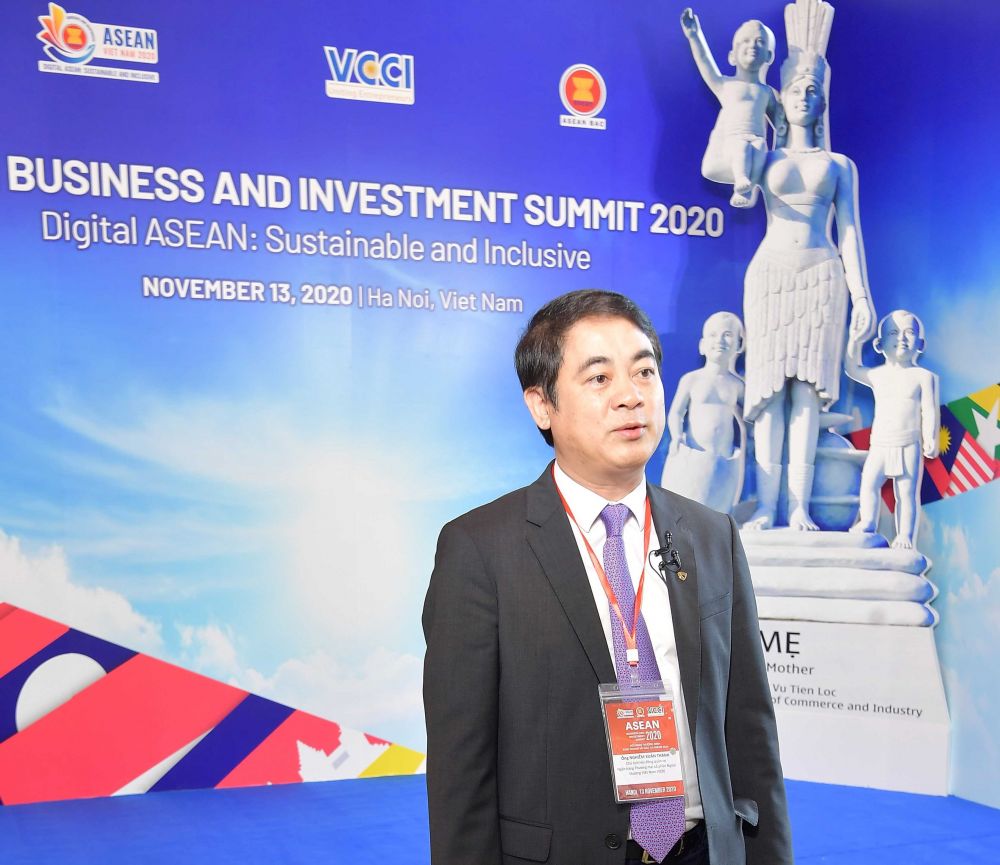 |
| Mr. Nghiem Xuan Thanh - Chairman of the Vietcombank Board of Directors shared his thoughts with the media on the sidelines of the ASEAN Business and Investment Summit (ASEAN-BIS). |
As one of the leading Vietnamese banking institutions, what kind of policy shifts has Vietcombank experienced in line with the new ASEAN business model and the Government-promoted “new normal” post-pandemic?
2020 is marked by a pandemic which has severely impacted the global economy. In Vietnam, the business and financial communities are among those hit the hardest. In the new normal, Vietcombank has taken steps to transform, reshape, and restructure the credit portfolio to become safer and more sustainable. Digitalization is also emphasized as we strive to accelerate the process of digital transformation and diversify product offerings on the E-Banking platform. Most recently, Vietcombank launched a new, integrated Internet/Mobile Banking solution combines “the best of both worlds” through an enhanced digital experience. Digital transformation will be the backbone to our business strategy, expected to help Vietcombank take advantage of opportunities, overcome challenges and remain competitive in the market.
Aware of the central role of digital transformation in the banking sector, especially in a post Covid-19 world, Vietcombank will continue to be proactive and focused on developing a digital eco-system, meeting customer needs while ensuring business continuity in the face of not only pandemic-induced challenges but also any possible future hurdles.
Vietcombank’s 2020 strategy revolves around four themes:“Transform - Safety - Efficiency - Sustainability". The Bank follows a two-pronged approach: maintaining stable asset growth while still ensuring asset quality. We have taken the lead in rolling out support for individual and business customers, affected by Covid-19, such as doing a careful review of our credit portfolio and setting aside sufficient provisions. Our LCR is consistently the highest among Vietnamese banks and Vietcombank continues to lead in terms of asset quality.
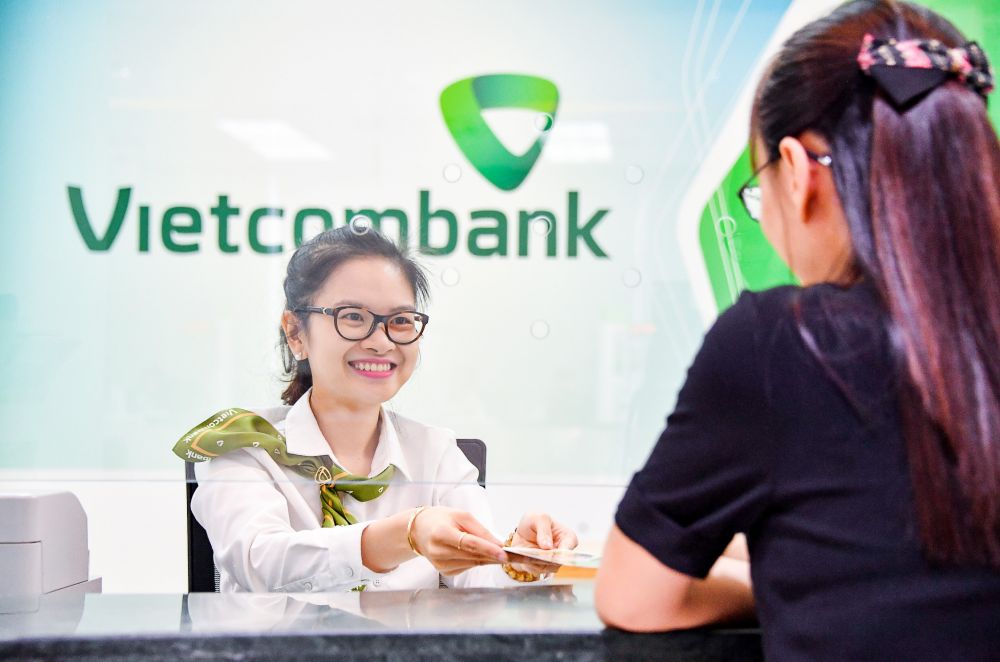 |
Facing these unprecedented difficulties, what kind of support has Vietcombank offered to ensure customers are able to access credit at a preferential rate, thereby ensuring business continuity?
As the leading bank in Vietnam, Vietcombank commits to always support customers through hardship. This is evident through our series of timely and practical solutions implemented thus far in accordance with the Government's guidelines and the State Bank's directives.
From the beginning of 2020, Vietcombank has issued several interest rates initiatives: (i) Phase 1, apply preferential interest rates of 4.5% - 5% p.a. for new loans totaling up to VND 30,000 billion, the lowest in the market; (ii) Phase 2, continue to reduce lending interest for 90,000 customers VND 300,000 billion outstanding exposure, making up nearly 50% of Vietcombank's book; (iii) Phase 3, cut interest rates to support all customers across business and consumer loans. It is worth noting that Vietcombank’s interest is always 0.5% - 1.5% lower than competitors.
At the same time, Vietcombank also offered discounts on E-Banking transaction fees to encourage migration to non-cash payment. We also waived all transaction fees for fund ttransfers in support of against the fight Covid-19. Vietcombank’s fee discounts totaled roughly VND ut 3,000 billion according to our estimates.
In addition, Vietcombank also donated tens of billions of VND to organizations and charities to purchase medical equipment and other necessities for pandemic prevention.
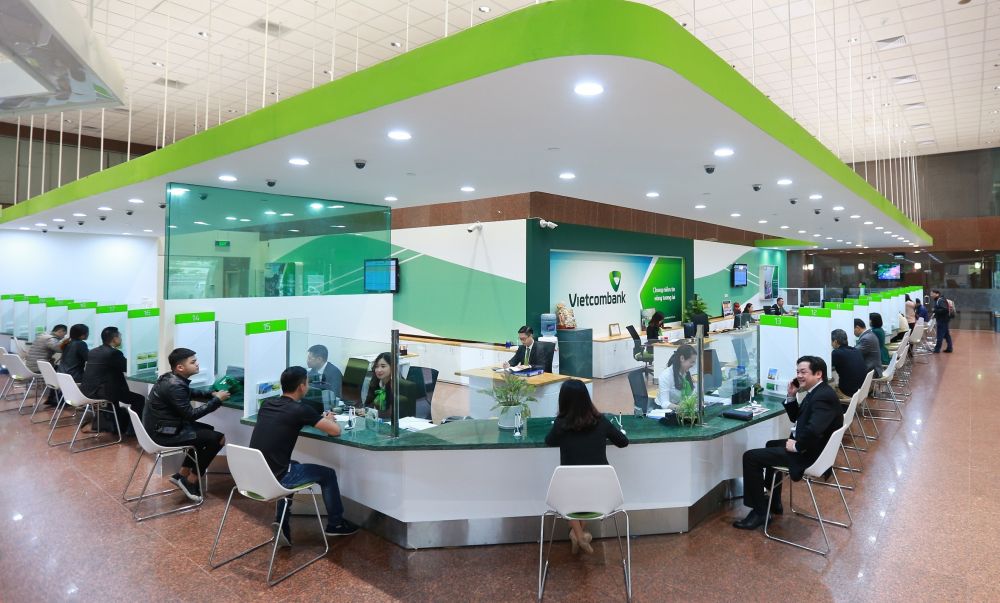 |
The global economy is facing challenges as a result of the Covid-19 pandemic. Nonetheless, the prospects of growth in ASEAN remain strong. In your opinion, what would be the advice for businesses? What can policymakers do to support these corporate efforts?
Quick and flexible in its response to Covid-19, ASEAN has been able to maintain positive economic prospects post-pandemic. Therefore, as global supply chain shifts, the region continues to attract international investors and businesses. ASEAN needs to be effectively connected internally and deeply integrated externally, relying on the Community’s inherent creativity, stability and harmony, as well as the transformations that the Fourth Industrial Revolution (Industry 4.0) brought to people’s livelihoods.
In order to capture all opportunities, ASEAN businesses are expected to develop adaptive, flexible business strategies hinged upon the digital transformation and following three groups of solutions. First, focus on crisis and liquidity management. Second, aim to create short-term value through quick-win solutions which increase operational efficiency and regulate cash flow. Finally, companies should contemplate repositioning strategies including reforming business/growth models, diversifying supply chains, reforming feedback loops… for more interactive communication effectively meeting customer’s needs.
From a policymaking perspective, ASEAN leadership should aim for a consensus regarding a series of breakthrough solutions, including: continue reviewing the legal framework to promote trade facilitation, uninterrupted circulation of goods and supply chains in the region; work on an open, sustainable and responsible regional investment policy; ensure food security and agricultural value chain; promote the use of renewable energy and support for a circular economy; enhance the development of digital infrastructure, digital connectivity, digital data security, digital knowledge and skills, linking ASEAN country members in order to develop digital economies; facilitate information sharing to handle challenges faced by e-commerce platforms; leverage Industry 4.0 to overcome the disadvantages of economic shutdown and social distancing, thereby remain competitive in the era of digital economy.
Given the flexibility and adaptability witnessed among ASEAN businesses in general and Vietnamese businesses in particular, in my opinion, we can count on ASEAN to remain the fastest growing region post-pandemic. Nevertheless, businesses will need to devise their own roadmaps and restructure core activities in order to stay ahead amidst the new environment.
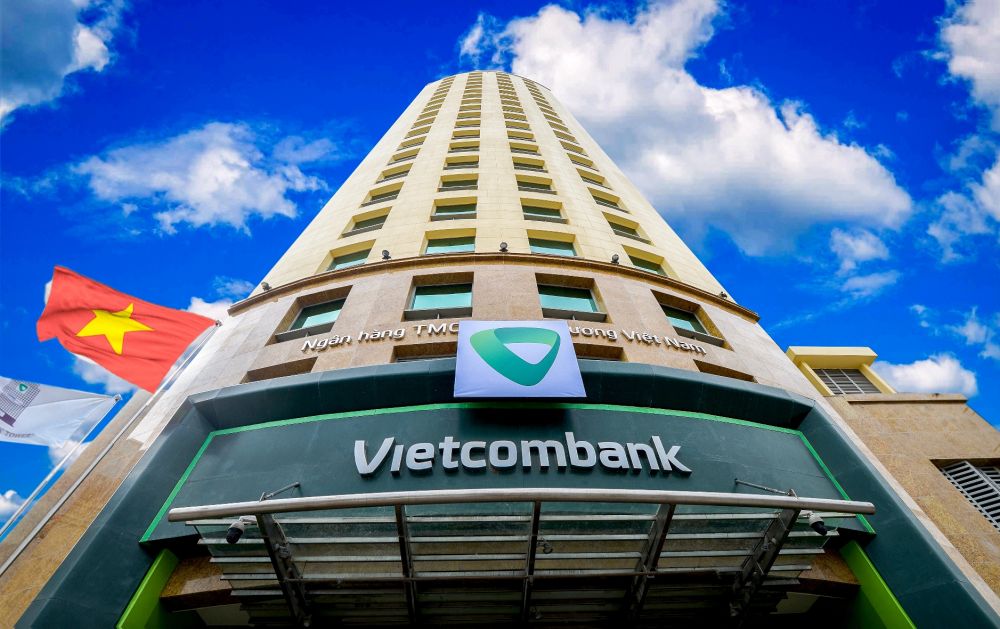 |
| Vietcombank ready to grasp opportunities of the post Covid-19 age. |
In his speech at ASEAN-BIS, Prime Minister Nguyen Xuan Phuc urges foreign countries to invest in Vietnam and ASEAN. In that context, what is your assessment on the opportunities perceived for Vietnamese businesses and Vietcombank in the post Covid-19 era?
Viet Nam is one of the most dynamic markets worldwide. I agree with the Prime Minister’s statement that ASEAN in general and Vietnam in particular will be prime destinations for foreign investment post-pandemic.
I also believe that Vietcombank – with our traditional competitive advantage in foreign trade and experience serving FDI enterprises is already in a good position to capture these opportunities.
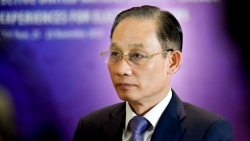
| Vietnam contributes to strengthening ASEAN - UN cooperation: Deputy Foreign Minister Le Hoai Trung The UN General Assembly’s recent adoption of a resolution on ASEAN-UN cooperation has demonstrated the UN’s acknowledgment of the grouping’s position and capacity, Vietnamese Deputy ... |
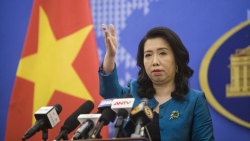
| Spokeswoman: Countries call for sustainable peace in East Sea Many countries expressed their concern over the situation in the East Sea and affirmed a need to maintain sustainable peace and long-term stability in the ... |
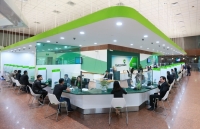
| Vietnamese banks target more overseas markets Vietnamese banks are stepping up plans to expand their markets globally instead of focusing only on the Indochinese region. |






















